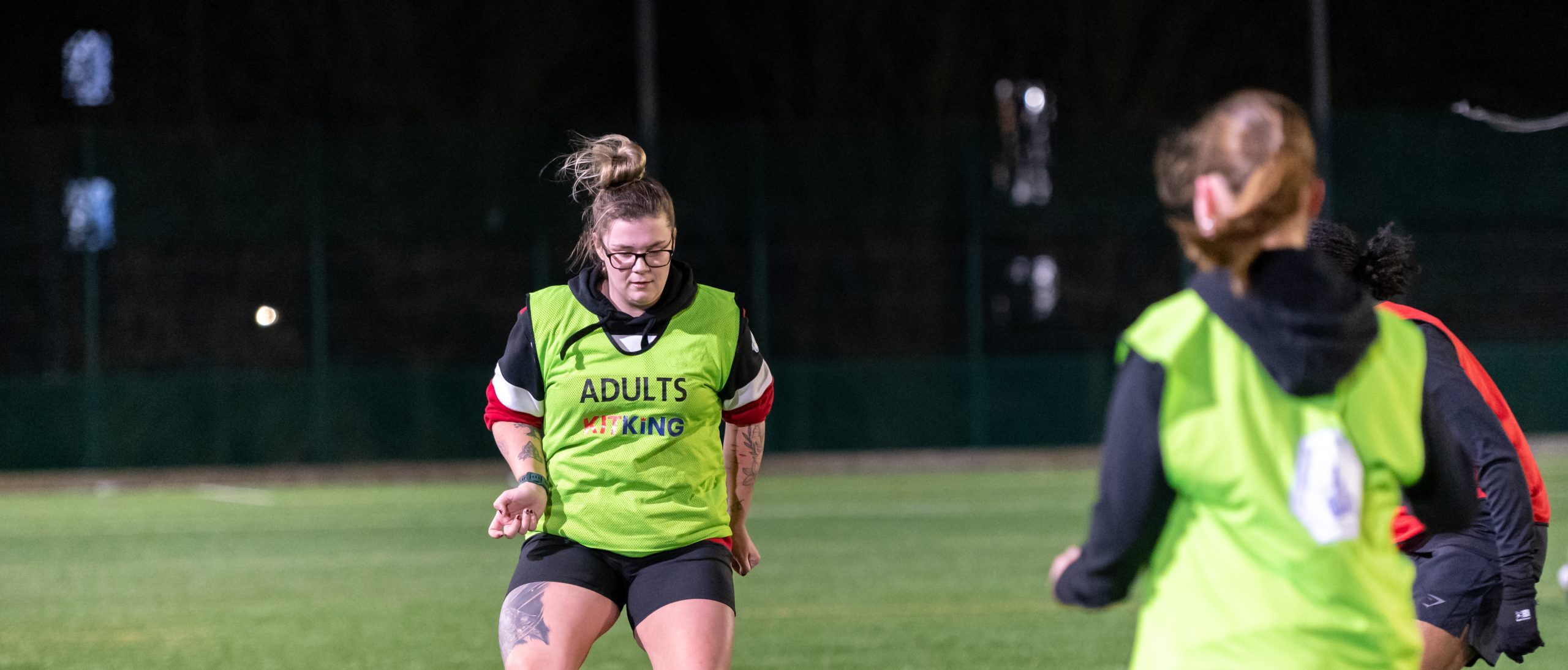
#TimeTogether Activity Ideas
Get inspired to be active with your mum or daughter for #TimeTogether
Published

Written by Varsha Patel, Communications and Campaigns Manager at Women in Sport
Growing up in the ‘80s as a young brown girl wasn’t easy. I loved sport and was hugely competitive, but due to cultural norms it wasn’t something that me or my south Asian friends were encouraged to try.
PE was fine, after school netball and rounders home matches were allowed but anything outside of that was not an option. My parents worked full-time, dad as a machine operator – even though he had a maths degree, which always baffled me, but it turns out that because his English wasn’t great, he was unemployable.
My mum couldn’t drive, and as a young brown girl growing up in a small gossip-haven town in the Black Country, I was expected to come straight back home from school, do my homework and then help my mum. I never challenged why I couldn’t play sport after school, it was something us Indian girls in my community never questioned, it was just the norm for us. Girls stayed in and watched ‘Neighbours’, boys did as they pleased!
Now and then, I got to go and watch my brothers play football, with my dad on the side-lines, which I used to absolutely love. My mum never came as she was too busy with the chores (likely because dinner had to be ready by a certain time, now I think about it) and it appeared that she had no interest in standing on the sidelines. It was unheard of to see a woman in a saree pitchside, they’d be found in the kitchen mustering up some divine meals whilst the dads supported their sons. Mum did love watching football on the TV though, as did I.
Whilst I continued with my education, and got married as was expected, sport became a distant memory for me, deeply rooted in the subconscious and nowhere to be found
Fast forward almost 30 years, I became a mum of two amazing daughters who share a passion for sport, football in particular. It’s only through their love for sport that I have finally rediscovered my love of sport. Not through playing but through coaching.
The journey began for me when my daughter was desperate to play matches but had no team to play with. Mums and Dads were asked to coach but there was sadly very little interest. Seeing my daughter and her little friends being denied the opportunity to play at the mere age of 7 because no one had time or felt they didn’t have the expertise broke my heart, and just like that I found myself stepping up and it was the best thing I ever did!
After agreeing to take on the role, I went home feeling elated for the girls but thinking to myself: “what on earth have I just done?!” The reassurance from the club’s head coach, Mark Gordon, went a long way, and the regular catch ups with him pitch–side really helped.

In between juggling a full-time job, a husband, six fish, two kids and everything else that comes with having a young family, I completed my FA mandatory courses to qualify as a Level 1 coach.
Thanks to the Women in Football bursary programme, I went on to progress my UEFA C license. This really helped build my knowledge in coaching, but left me with serious imposter syndrome, attending in-person modules with a room full of men, facilitated by white male coaching developers. Being a woman was scary enough, but being south Asian on top of that, I really felt like I didn’t belong in this space.
Although the feeling of imposter syndrome never quite leaves you, I keep myself focused on the 'why'.Varsha
Often after matches, I would dwell on the result and convince myself to give up. I couldn’t kick a ball, didn’t understand the ‘offside’ rule, knew little about the technical side of the game: what could I really offer as a coach? But what I did come to realise was that coaching was so much more than that.
Giving up would mean letting down so many girls that had built genuine friendships and bonds. Although the feeling of imposter syndrome never quite leaves you, I keep myself focused on the ‘why’. The soft skills and nurturing side I bring as a mum to my coaching style is what makes this opportunity so precious to me.

Varsha celebrating her daughter's football achievements
Surrounding myself with other female coaches is invaluable and has helped my confidence grow immensely. Through my coaching community, I initiated a pilot project working with a local primary school in Essex, which has a high proportion of south Asian pupils. In partnership with the Essex FA this project offered an 8-week programme delivering girls-only lunchtime football sessions once a week. It has been so brilliant to see so many south Asian girls play football for the first time and identify with a coach that looks like them, and to take that message home to their parents.
Since embarking on my coaching journey, I have started working at Women in Sport, where I am able to raise awareness of the young girls around the country who may be missing out on opportunities to be active because of their cultural background. I love being able to relate to the cause myself as a young brown girl raised in a world where the value of sport was overlooked, often because culturally it was not deemed as important as academia. Most importantly, I love seeing my daughters embrace their sporty side. Playing as part of a team brings them such joy and as well as building vital life skills, like teamwork and resilience. Perhaps one day they will also realise their dreams of becoming the first south Asian Lionesses.

Varsha at a local primary school running a coaching pilot scheme

Get inspired to be active with your mum or daughter for #TimeTogether

With high-profile sportsmen Ugo Monye, Andy Murray and Siya Kolisi voicing their support for women's sport, we reflect on why male allyship is essential to change the game.